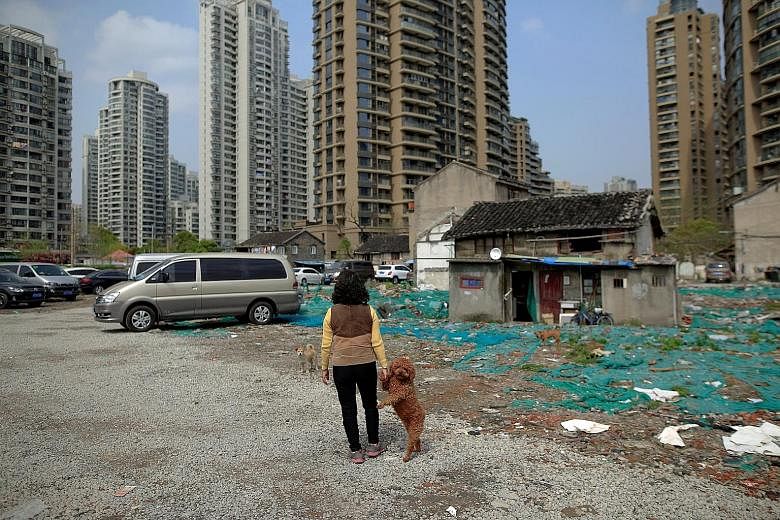SHANGHAI • The deal could be hard to resist. A Shanghai investment firm is offering a fat return of up to 10 per cent a year, handily beating both the local stock market and the paltry payouts from bank accounts. It requires a minimum deposit of about US$15 (S$20), making it accessible to just about anyone.
Investors can pull out in as little as seven days. Best of all, the money is guaranteed.
There is just one catch: Investors know surprisingly little about what they are buying.
The firm, State Gold Treasure, said the money would be ploughed into a real-estate company building a luxury serviced-apartment complex here in Shanghai. But it will not release details, including the complex's address.
The offering is just one of a spate of barely regulated, highly opaque investments that are posing a growing threat to the Chinese financial system. As the country's economy slows, experts increasingly worry that many of the investment funds could fail - and the government may not know how to handle the shock to its financial system.
Over the last five years, Chinese investors have ploughed at least US$2.8 trillion into buying such funds from banks alone.
After quintupling since 2011, these investments, known as wealth management products, now total an amount roughly equal to more than one-third of the country's annual economic output. Their growth has increased as China's economy has slowed.
That is just the funds distributed by banks. Reliable data on wealth management products sold by other types of firms, like State Gold Treasure, is hard to come by.
The problem for China is that a big chunk of the money is going into troubled industries like construction and real estate. Further slowdowns in those areas could result in major blow-ups.
Banks also increasingly use the funds to raise money, instead of more stable deposits. The extra investment cash allows banks to make loans at a much faster clip than their deposits alone would allow. But if investors suddenly demanded their money back, banks could be in a financial bind.
The Chinese government so far has stepped in to stop big meltdowns of wealth management products, to avert ripple effects and forestall investor anger. But not all investors have been spared.
Dr Li Wenyuan, a physician in Beijing, says she invested almost US$140,000 last year in a wealth management product linked to a steel company. After the company ran into difficulty, she was repaid less than US$2,000. She had planned to use the entire original amount to send her son to a high school in Canada, where the air is cleaner and he would have a chance to improve his English.
"It's quite a big loss for my family," she said. "We are still able to provide for ourselves. Still, it's a lot of money and I doubt I will ever get it back."
Wealth management products are part of a huge but shadowy system of unregulated investments and underground banks that many Chinese people depend on for the loans that keep their businesses humming. Increasingly, the debate inside and outside China is focusing on what will happen if that system falls apart - and how quickly the government might be able to respond.
NEW YORK TIMES

